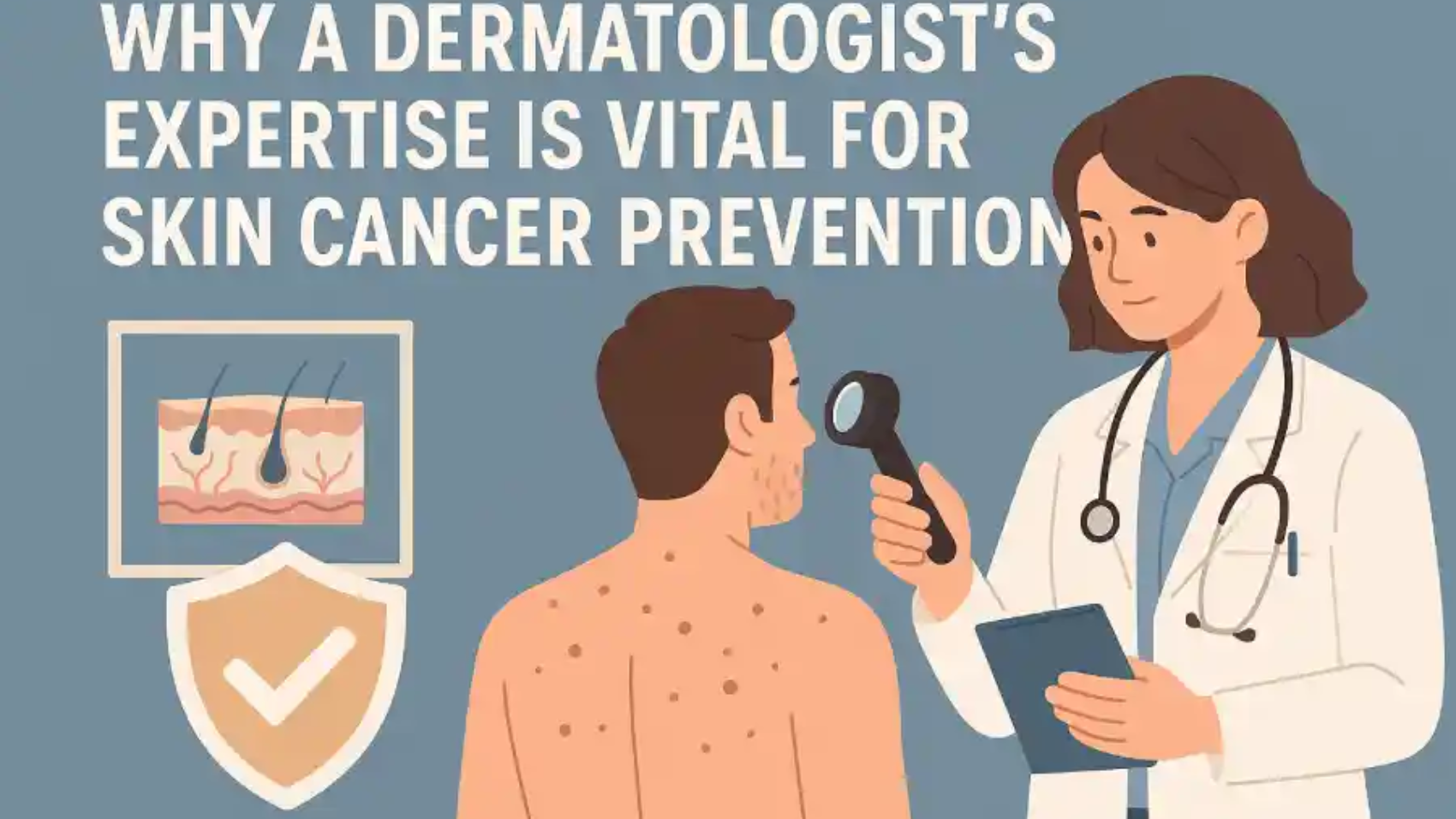Skin cancer is the most common cancer in the United States, making early detection and prevention strategies beneficial. Dermatologists specialize in diagnosing and treating skin conditions, including various forms of cancer. Understanding their role in prevention can help you make informed decisions about your skin health and develop effective protective measures.
What Is a Dermatologist?
A dermatologist is a medical doctor who specializes in diagnosing, treating, and preventing conditions affecting the skin, hair, and nails. They can identify various skin conditions, from common rashes to complex cancerous growths. Dermatologists also learn to recognize subtle changes in skin appearance that may indicate serious conditions. This specialized knowledge enables them to identify potential problems that other healthcare providers may overlook.
What Services Do They Offer?
Dermatologists provide comprehensive skin care services ranging from routine examinations to advanced surgical procedures. Preventive care forms a significant portion of their practice, including regular skin cancer screenings and mole mapping. They also perform biopsies when suspicious lesions are identified, allowing for accurate diagnosis and early treatment.
Treatment services include surgical removal of cancerous and precancerous lesions, Mohs surgery for complex cases, and various non-surgical therapies. Cosmetic procedures are a specialty within dermatology, encompassing treatments such as Botox, facials, fillers, and chemical peels. Dermatologists may also educate patients on proper sun protection, self-examination techniques, and identifying risk factors for skin cancer.
See Also: Reasons To Get Regular Skin Cancer Screenings
What Is Skin Cancer?
Skin cancer occurs when skin cells grow uncontrollably due to damage to their DNA. The three main types include basal cell carcinoma, squamous cell carcinoma, and melanoma. Basal cell carcinoma is the most common form, typically appearing as small, shiny bumps or flat, scaly patches on sun-exposed areas.
Squamous cell carcinoma often presents as red, scaly patches or open sores that may bleed or crust. Melanoma, the most dangerous form, can develop from existing moles or appear as new, irregularly shaped growths. Each type requires different treatment approaches and carries varying risks of spreading to other parts of the body.
What Causes It?
Ultraviolet (UV) radiation from sun exposure represents the primary cause of skin cancer. UV rays damage skin cell DNA, leading to mutations that can result in the development of cancerous growth. Cumulative sun exposure over a lifetime increases risk, particularly for those with fair skin, light eyes, and blonde or red hair. Other risk factors include having a family history of skin cancer, personal history of previous skin cancer, weakened immune system, and exposure to certain chemicals.
How Can a Dermatologist Help Prevent It?
Dermatologists play a valuable role in skin cancer prevention through regular screening examinations. During these visits, they examine the entire body for suspicious lesions, documenting changes in existing moles and identifying new growths. Professional skin examinations can detect cancers in early stages when treatment is most effective.
Risk assessment represents another preventive service dermatologists provide. They evaluate individual risk factors, including skin type, family history, and lifestyle patterns. Based on this assessment, they recommend appropriate screening intervals and personalized prevention strategies.
Dermatologists also remove precancerous lesions before they develop into cancer. Actinic keratoses are rough, scaly patches that can progress to squamous cell carcinoma. Removing these lesions prevents cancer development and reduces the risk of future cancer.
Prevent Skin Cancer Now
Regular dermatological care represents one of the most effective strategies for preventing skin cancer and detecting it early when treatment is most successful. Professional skin examinations, combined with appropriate sun protection measures, can significantly reduce your risk of developing this common but preventable disease. Schedule an appointment with a dermatologist today to begin your skin cancer prevention journey.
Related Posts:

